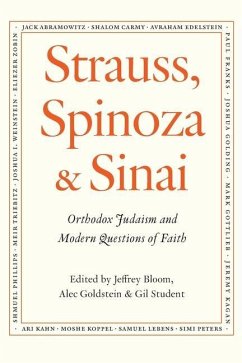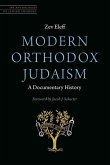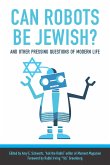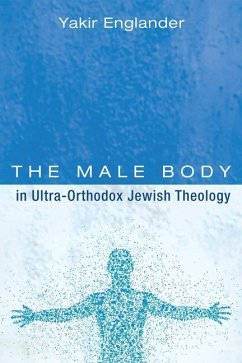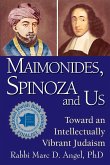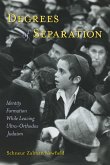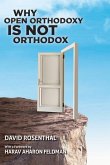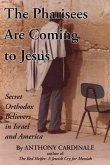More than three centuries after Baruch Spinoza's excommunication from the Jewish community of Amsterdam, his legacy remains contentious. Born in 1632, Spinoza is one of the most important thinkers of the Enlightenment and arguably the paradigm of the secular Jew, having left Orthodoxy without converting to another faith. One of the most unexpected and provocative critiques of Spinoza comes from Leo Strauss. Strauss grew up in a nominally Orthodox home and emigrated from Germany to the United States in the 1930s. He taught at the University of Chicago and was one of the most influential political philosophers of the twentieth century until his death in 1973. Though Strauss was not an Orthodox Jew, in a well-known essay that prefaced his study of Spinoza, he critically examines modern philosophy's challenge to traditional religion. There he argues that while the Enlightenment had failed to decisively refute Orthodoxy, at the same time, Orthodoxy could only claim to believe its core tenets were true but could not claim to know they were true. Strauss leaves the question at an impasse; both the Enlightenment and Orthodoxy rest on axioms that neither side can fully prove or fully refute. Curiously, Strauss never asks Orthodox Jewish thinkers if his approach to defending Judaism against the claims of the Enlightenment is the same as theirs. This volume poses the question to a group of serious Orthodox Jewish thinkers in an attempt to find out if Orthodoxy has a better answer to the questions raised by Strauss than the one Strauss advanced on its behalf. The seventeen essays in this volume use a variety of approaches, drawing on traditional primary Jewish sources like Scripture, Talmud, and Midrash; medieval rationalists like Maimonides; Enlightenment-era Orthodox sources; Jewish mystical writings like Kabbalah and Chasidut; modern philosophical movements including postmodernism and analytic philosophy; and contemporary Jewish Bible interpretation. While the answers differ, what unites these essays is the willingness to take Strauss' question seriously and to provide "inside" answers, that is, answers given by Orthodox Jews. Much of modern thought tries to square the circle of how to live in a world without belief. The better question is whether it is possible to recover authentic religious belief in the modern world. This volume is an Orthodox Jewish attempt to answer that question, one that no serious person can approach with indifference. Table of Contents * Spinoza, Strauss, Meno and Maimonides - Jack Abramowitz * An Argument for Business-Men - Shalom Carmy * Spinoza: A Superb Intellect Sacrificed on the Altar of Human Arrogance - Avraham Edelstein * Reason, Faith, and the Overcoming of Shame: Can Maimonides Still Serve as a Model of Inquiry into the Rationality of Jewish Belief? - Paul Franks * Commitment to Judaism in the Modern Era - Joshua Golding * The Validity of Religious Experience in a Post-Kantian World - Alec Goldstein * Leo Strauss and the Lure of Orthodoxy, or, How to "Awaken a Prejudice" - Mark Gottlieb * The Nature and Pursuit of Truth in Different Cultural Contexts - Jeremy Kagan * Belief and Knowledge - Ari Kahn * Why Revelation but Not Orbiting Teapots? - Moshe Koppel * Is it Rational to be an Orthodox Jew? - Samuel Lebens * Why Should a Jew Choose Belief? - Simi Peters * Knowledge, Morality, and Maimonides' Elusive Quest for Objective Truth - Shmuel Phillips * Saving Faith: Reviving Nineteenth-Century Responses to Haskalah in the Twenty-First Century - Gil Student * Leo Strauss, Spinoza, and the Meaning of Tradition - Meir Triebitz * Orthodoxie and the Oral Law - Joshua I. Weinstein * "The Foundation of Foundations and Pillar of All Knowledge" One Needs Belief in order to Reason, Not Reason to Believe - Eliezer Zobin
Hinweis: Dieser Artikel kann nur an eine deutsche Lieferadresse ausgeliefert werden.
Hinweis: Dieser Artikel kann nur an eine deutsche Lieferadresse ausgeliefert werden.

